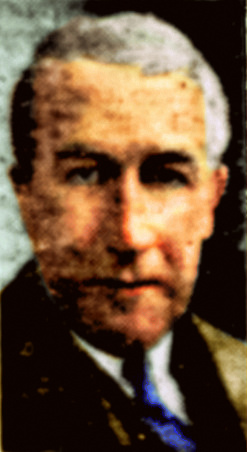
With impending collapse of Germany, ticklish issue can’t be avoided longer
By William Philip Simms, Scripps-Howard foreign editor
Québec, Canada –
With the arrival here of British Foreign Minister Anthony Eden, there is talk of a settlement of the ticklish, if not dangerous, quarrel between Poland and Russia.
With the impending collapse of Germany, European boundary problems become acute, especially in Eastern Europe and the Balkans. Russia has staked out expansive territorial and political claims. Thus far, Britain and America have shied away from such questions, preferring to cross those bridges as they come.
But the Polish issue can no longer be avoided. She is an ally. If she is to lose half her territory and her political independence to appease an ally, it may knock post-war world collaboration into a cocked hat.
In Washington recently, I learned that the Polish government in London was willing to meet Moscow more than halfway.
Up to the present, Moscow’s attitude toward Warsaw has been frigid.
Russia ever refused aid to Gen. Bor’s Polish Patriots, fighting in Warsaw. The British and Poles had to fly all the way from Britain to drop supplies for Gen. Bor. Russia, with airfields 10 minutes from Warsaw, refused to do anything.
It is a reasonable assumption that Mr. Eden came to give Mr. Churchill and the President a fill-in on important developments since Mr. Churchill’s departure. He may have brought news that the end of the war in Europe is nearer than was thought, and perhaps to urge upon the “Big Two” a new and early meeting of the “Big Three” – a meeting with Marshal Stalin.
By Bertram Benedict
The first conference of President Roosevelt and Prime Minister Churchill at Québec was held a little more than a year ago, from Aug. 17 to Aug. 24, 1943. There were rumors that the conference would produce a notable declaration like the Atlantic Charter, which had come out of the Roosevelt-Churchill meeting on the high seas two years before, or like the “unconditional surrender” demand which had come out of the Casablanca Conference in the previous January, but the 1943 Québec Conference produced nothing of the sort.
The joint Roosevelt-Churchill statement issued at the close of the conference said merely that military operations all over the world, including the war against Japan, had been surveyed. Decisions had been made, but could not be disclosed. It had been resolved to hold another Anglo-American conference before the end of the year, “in addition to any tripartite meeting which it may be possible to arrange with Soviet Russia.” Russia would be fully informed of the decisions reached as to the war against Germany and Italy.
The President’s address at Ottawa following the conference was in the nature of a “peptalk,” telling the world that Germany was about to be defeated.
Invitation denied by Moscow
In 1943, as in 1944, Soviet Russia was not represented. President Roosevelt was understood to say that Marshal Stalin had been invited to come. Thereupon Moscow denied flatly that any such invitation had been received.
While the conference met, Soviet publications continued to criticize the United States and Great Britain for not opening a real second front. The magazine War and the Working Class explained that the Québec Conference was all right as an Anglo-American parley, but said that the real need was for a tripartite Soviet-Anglo-American conference soon in Moscow.
The 1943 Québec Conference met amid fears that Russia would insist on playing a lone hand. There were rumors that Germany had offered Moscow a separate peace.
Several weeks before the 1943 Québec Conference met, Mussolini had been deposed in Italy, and Gen. Badoglio had been named Italian Premier. There was confusion as to Gen. de Gaulle’s status. After the conference adjourned, the United States recognized Gen. de Gaulle’s French Committee of National Liberation as the “administrative authority” of the French overseas territories actually under the committee’s control.
Action on war fronts
While the conference was meeting, the conquest of Sicily was completed. American and Canadian forces occupied Kiska, from which the Japanese had departed unscathed. There was hard fighting on New Guinea. In the east, the Russian advance retook Kharkov.
Goebbels told the German people over the radio that a new secret weapon was under construction which would soon give them relief from Allied air raids.
At Québec in 1943, President Roosevelt made public his executive orders allowing the War Manpower Commission to withdraw draft deferment from recalcitrant strikers and allowing union dues to be placed in escrow in any plant taken over by the government.
The War Labor Board took jurisdiction of the wage dispute in the anthracite mines. The Board also ordered Montgomery Ward to enforce a maintenance of union membership clause. Under Secretary of State Welles was said to be on the point of resigning. Mrs. Roosevelt was in New Zealand.
